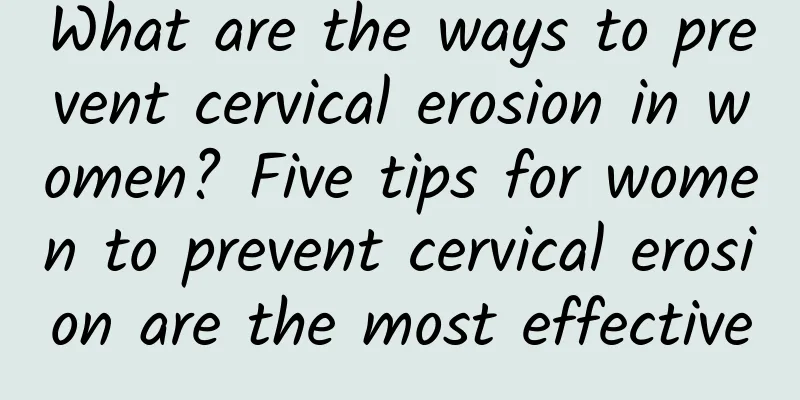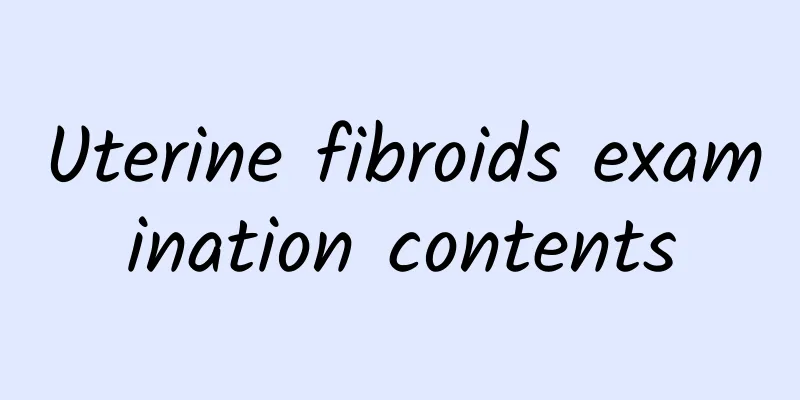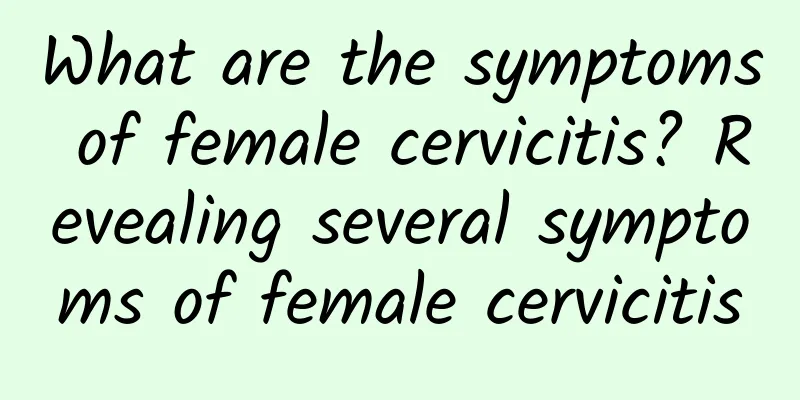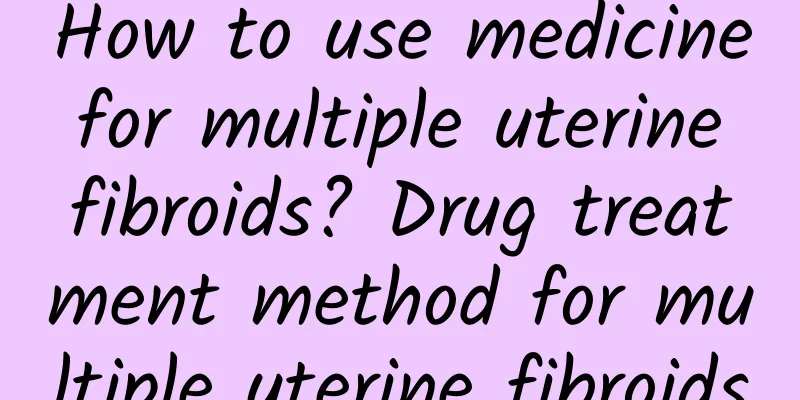Symptoms of uterine fibroids How to treat uterine fibroids
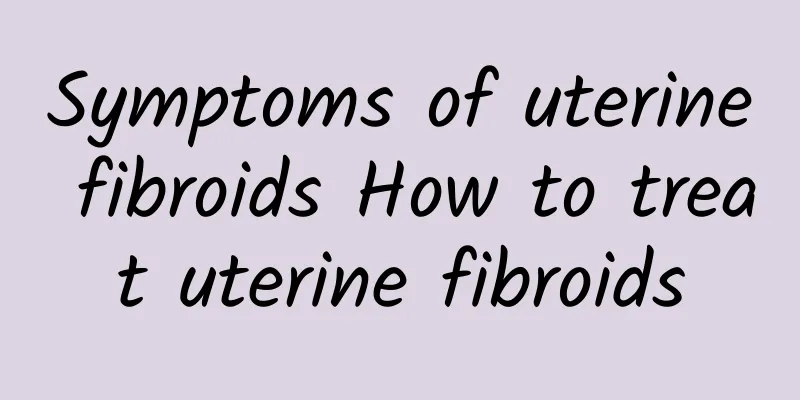
|
Experts recommend that you treat uterine fibroids as soon as possible. First, you need to understand the symptoms and treatment methods of uterine fibroids. What are the symptoms of uterine fibroids: (1) Menstrual changes. If your normal menstrual cycle changes, your menstrual blood volume increases, your period becomes longer, and your periods become irregular. (2) Pain. Most patients with uterine fibroids do not feel pain, but a few will experience lower abdominal pain after fibroid infection or uterine deformation. (3) Lump. The lump may be felt in the lower abdomen, especially when the bladder is full. (4) Feeling of oppression. Most people with uterine fibroids do not feel anything. However, if the fibroid is located low, even if the tumor is not large, it can compress adjacent organs such as the bladder, causing difficulty in urination; if it compresses the rectum, defecation becomes difficult; if it compresses the ureter, symptoms such as back pain may occur. (5) Infertility A small number of patients with uterine fibroids may suffer from infertility because the uterus is deformed, which is not conducive to the implantation of the fertilized egg. Treatment of uterine fibroids: 1. Conservative treatment Conservative treatment of uterine fibroids must meet the following conditions: the tumor size does not exceed 6 weeks of pregnancy; the patient is postmenopausal and asymptomatic; and the patient cannot tolerate the pain of surgery. Conservative treatment is divided into two categories: expectant treatment and drug treatment. 2. Surgical treatment The applicable conditions for surgical treatment are as follows: the size of the fibroid is close to the size of the pregnant uterus for more than one and a half months. However, if the fibroid grows rapidly, the fibroid protrudes from the abdominal cavity and has a tendency to twist, surgical resection should also be performed. Surgical treatment is divided into hysterectomy and hysterectomy and laparoscopic myomectomy. 3. Minimally invasive coagulation technique This is a high-end medical technology that integrates various electronic technologies. It is suitable for the following people: large uterine fibroids leading to pelvic congestion, obvious clinical compression or depression symptoms; uterine volume increase up to 3 months of pregnancy. Increased menstrual volume, severe secondary anemia. |
<<: How to treat uterine fibroids after pregnancy? Symptoms of uterine fibroids after pregnancy
Recommend
Here are the examination items for irregular menstruation
What are the examinations for irregular menstruat...
Talk about the need for women to persist in the treatment of vulvar leukoplakia
The number of women suffering from vulvar leukopl...
unexpected! Drinking beer can cool you down and beautify your skin
The summer is hot and the temperature is hitting ...
Is invasive hydatidiform mole a malignant tumor?
Invasive mole is a malignant tumor. Invasive mole...
Cost of comprehensive endometrial tuberculosis screening
The treatment cost of endometrial tuberculosis is...
Experts briefly analyze the main symptoms of severe cervical erosion
It is understood that many patients with cervical...
What is "hidden muscle"? Is it okay not to train too hard? 10 fitness myths to help you solve
What is hidden muscle? To put it simply, it means...
Common misunderstandings after abortion
In real life, many women do not know enough about...
Will cervical warts definitely recur?
After suffering from cervical warts, you must see...
What should not be eaten if you have cervical warts?
What should patients with cervical warts pay atte...
The three major causes of cervical hypertrophy
Why do people continue to suffer from cervical hy...
How to effectively prevent abortion syndrome
How to effectively prevent abortion syndrome? Abo...
Do you know the causes of ectopic pregnancy?
Do you know the causes of ectopic pregnancy? What...
What are the dangers of multiple uterine fibroids? Will multiple uterine fibroids worsen?
There are many types of uterine fibroids, and mul...
The causes of irregular menstruation need to be taken seriously by women
In recent years, irregular menstruation has often...
